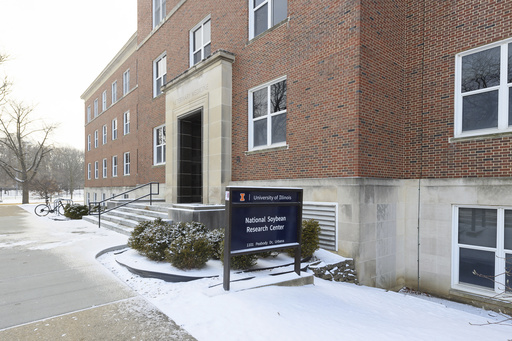WASHINGTON – In the midst of a turbulent economic climate, many individuals and organizations are grappling with the fallout from recent cuts to U.S. foreign aid. An executive from a supply-chain firm breaks down while preparing to inform employees of impending layoffs. A farmer from Missouri recalls lessons from his childhood, recognizing that an increase in global hunger equates to greater peril around the world. Meanwhile, a philanthropy established over 120 years ago by Jewish immigrants escaping persecution is on the verge of scaling back significant parts of its operations.
The repercussions of the Trump administration’s decision to dismantle the U.S. Agency for International Development (USAID) have left a staggering impact on approximately 14,000 agency workers and numerous foreign contractors. In addition, countless individuals and businesses throughout the nation and beyond are feeling the strain from halted U.S. financial support. The cuts have placed them in precarious positions, with several organizations facing possible financial ruin.
U.S. entities regularly conduct billions in transactions with USAID and the State Department, which collectively manage upwards of $60 billion in foreign aid. Notably, over 80% of firms contracting with USAID are U.S.-based, as indicated by data from aid-focused organizations. The situation turned critical when President Trump enacted an executive order on January 20, pausing foreign aid payments altogether, accusing the agency’s missions of being inefficient and aligned with a liberal agenda.
According to USAID Stop-Work, a monitoring group, almost 13,000 American workers employed by USAID contractors have experienced layoffs. However, the group believes that the real number could be over four times that figure, indicating a wider impact across various sectors.
One poignant example comes from the Soybean Innovation Lab at the University of Illinois Urbana-Champaign, which partners with processors and agricultural entities to optimize soybean usage across 31 nations. The lab is at risk of closure come April if they do not receive emergency funding. Peter Goldsmith, the director, emphasized the importance of such partnerships, noting their role in expanding U.S. farmers’ markets and the potential chaos that could ensue if other entities were to fill the consequent void. “It’s a vacuum,” he stressed. “And what will fill that vacuum? There’s no doubt, something will.”
In the nonprofit sector, organizations such as HIAS – a Jewish charity focused on aiding refugees – are also feeling the strain. The group, founded by Jews escaping Eastern European pogroms, is forced to shutter nearly all aspects of its work due to a significant reduction in funding following the cuts. HIAS President Mark Hetfield highlighted that 60% of their financing has disappeared overnight, leading to furloughs among their 2,000 employees operating in 17 states and 20 countries.
Keith Ives, a former Marine and now the head of a small nonprofit in Denver, found himself in a precarious position as well. His organization, Causal Design, which assesses the effectiveness of USAID initiatives, has been heavily reliant on this funding source. Ives faced the gut-wrenching task of informing half of his staff that their jobs would vanish at the month’s end. As he tries to navigate the ramifications of the funding freeze, his attention is drawn to the long-term effects this could have on U.S. international relations.
On the ground, businesses that rely on USAID-funded contracts are also facing dire circumstances. Executives from these companies describe conditions that could lead to ruin, as the administration only sent out contract termination notices, offering no further assistance in light of the budget cuts.
In rural Missouri, Tom Waters, a farmer with a legacy spanning generations, reflects on the far-reaching consequences of these changes while considering his grandfather’s wisdom on hunger’s connection to unrest. Waters emphasizes the role of American agricultural exports in stabilizing global economies through USAID programs, which have historically provided a vital outlet for U.S. farmers since the Kennedy administration.
Although the full extent of the loss to his operations remains unclear, Waters and his peers remain vigilant and concerned about the potential for decreased market demand and the possibility of losing ground to foreign competition. Despite the uncertainty, he believes that Trump supporters will continue to show loyalty, remaining patient and supportive of the administration’s current approach.
As the consequences of these cuts ripple through various sectors of society, many Americans are left in a state of worry about their livelihoods and the stability of their communities.
